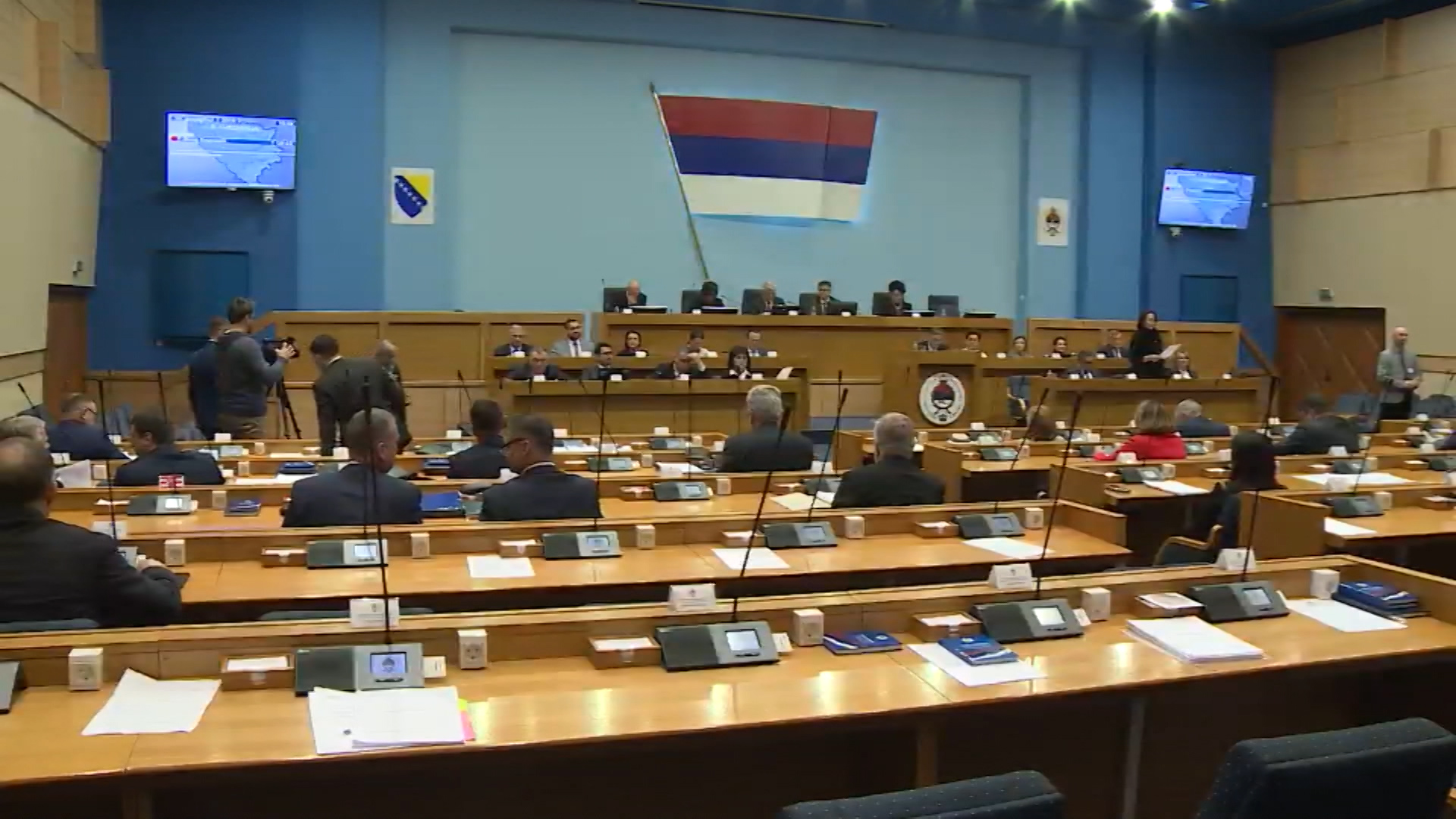Bosnian Serb region instructs its representatives to block state institutions

After a Monday session, Bosnia’s Serb-majority region instructed its representatives in state institutions to halt any decision-making processes until the adoption and implementation of a law that would remove foreign judges from the Constitutional Court and reject any “undemocratic” and unconstitutional decisions by the Court and Bosnia’s international administrator.
The conclusions are leading Bosnia into a new political crisis.
Bosnia is composed of two semi-autonomous entities - the Serb-majority Republika Srpska (RS) and the Federation (FBiH), mostly populated by Bosniaks and Croats.
The state Constitutional Court recently ruled that an RS law which defines all agricultural public property as the ownership of Republika Srpska is unconstitutional, arguing that the state of Bosnia and Herzegovina should be the owner of such land.
The ruling caused outrage among Bosnian Serb leadership, which has been accusing the Constitutional Court of working against Republika Srpska for years.
The Serb member of Bosnia’s tripartite Presidency and the leader of the strongest Bosnian Serb party, Milorad Dodik, argued that the problem is the composition of the institution.
The Constitutional Court is composed of nine judges - two Bosniaks, two Serbs, two Croats and three foreigners.
According to Dodik, the foreign judges must leave because they always side with the Bosniaks and outvote the Croat and Serb judges.
“The National Assembly of Republika Srpska obligates RS representatives of in institutions of Bosnia and Herzegovina to halt any decision making processes in state bodies until a Law on ending the mandate of foreign judges and on electing domestic judges in the Constitutional Court is adopted and enters into force and until the disputed decision by Bosnia’s Constitutional Court regarding agricultural land of Republika Srpska is annulled,” one of the conclusions said.
Another one said that the Constitutional Court and High Representatives - the diplomats named by the international community who have been overseeing the civilian implementation of the 1995 Dayton Peace Agreement - have been breaching that agreement and the Constitution by changing Bosnia’s political system.
“The Republika Srpska National Assembly obligates all institutions of Republika Srpska to reject and not to implement any future anti-Dayton Agreement and undemocratic decisions of the High Representative and the Constitutional Court of Bosnia and Herzegovina,” the RS National Assembly adopted.
RS representatives were tasked with proposing a law on removing foreign judges from the Constitutional Court to Bosnia’ Parliament, as well as to “continue previously initiated negotiations” with the Government of FBiH on defining the border between the two entities.
Kakvo je tvoje mišljenje o ovome?
Učestvuj u diskusiji ili pročitaj komentare





 Srbija
Srbija
 Hrvatska
Hrvatska
 Slovenija
Slovenija







